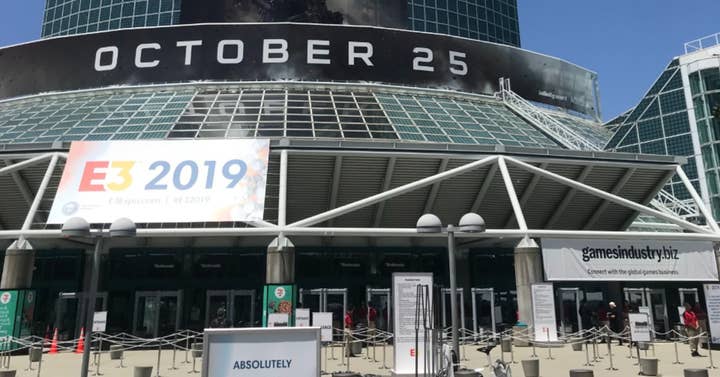We don't need E3 anymore
Fancensus head of analytics Ryan Janes analyses the media impact for the summer's biggest announcements
The question of how much "we" as in industry need E3 has been a hot talking point for years now with cases to be made for both sides of that argument.
Over those years we at Fancensus have even found ourselves conflicted on the subject, too; the gamer in us sad at the thought of losing that one month where surprises and jaw-dropping moments await, but our analytical side steering us toward taking that question more seriously.
2020 in particular may have finally convinced us that we don't necessary need E3... at least in the conventional sense that is.
Why now though? What's changed? For starters, the world. With COVID-19 forcing the cancellation of events everywhere -- not just in the gaming industry -- 2020 has therefore been the first year where we have no traditional E3.
That means the first year where we can actually see the ramifications of not having an event on the press and social coverage created for publishers and their products. Up until now, any case built around proving the diminishing importance of E3 would have been based on a theoretical condition since it's never actually missed a year going all the way back to 1995.
The spread-out nature of 2020's events has allowed new game reveals time to circulate, as opposed to battling for the spotlight
Twenty-five years is a long time in which the industry has used E3 as its chance to show the world its latest and greatest. And, while publishers, media and other members of the industry are certainly trying to take advantage of the hype and excitement this time of year still clearly holds, when we look back, 2020 will likely be seen as 'that time the industry experimented and tried to replace E3'.
That's not something I mean in a negative way either. We are cruising in uncharted waters right now and the only way we're able to learn anything is to try other methods, whether it's EA simply continuing with their usual 'non-E3 but totally E3-related' stream or Nintendo doing away with its Directs and instead dropping an announcement trailer for Paper Mario: The Origami King one random Thursday afternoon. To truly gather whether E3 is important enough for the industry, we needed a year like this one though. Now we can start to see the results of an E3-less summer.
Regardless of whether you're looking at games that have been announced this summer as part of a bigger online event or those done in a more isolated fashion, it's hard to argue that the results have been very promising so far.
Take the debuts of Assassin's Creed Valhalla and Marvel's Spiderman Miles Morales, the first officially announced back toward the end of April and the second done so during the PS5 Future of Gaming stream. Both titles received strong press coverage in the first 72 hours after their announcement, Ubisoft's long running franchise in particular, scoring much higher than any game debuted at E3 last year during that same time span of 3-days after announcement. This even includes games featured during major press conferences such as Elden Ring and Star Wars: Jedi Fallen Order (see Figure 1).
Figure 1: Media activity over 72 hours after reveal

The same also holds true for titles outside the AAA classification (see Figure 2), with smaller mid-tier games like Worms Rumble and Bugsnax creating comparable levels of press coverage to similar-sized titles revealed at E3 2019 like No More Heroes 3 (announced during a Nintendo Direct) and Blair Witch (announced during the Xbox E3 Briefing).
Figure 2: Media activity over 72 hours after reveal

In fact, when comparing press coverage of further games revealed during last year's E3 with those announced during this year's summer, the result again shows that 2020's efforts have proven very fruitful. Taking that larger sample of titles, the average number of articles received in the first 72 hours from their announcement at E3 2019 per game is slightly down by 5% than games announced as part of an online event during this summer. It's also over a fifth lower than games announced without the use of one at all.
If a sequel in the once dormant Crash Bandicoot franchise can reap a stronger online presence than a a sequel to Breath of the Wild, 2020 must be doing something right.
What's even more remarkable is that if you widen this range to include coverage up until a whole week post announcement, E3 2019 falls even further behind 2020 announcements with the average article count now 22% lower than event-tied debuts this year and a massive 60% lower than isolated ones.
As much as we often praise E3 for the flurry of games it has in attendance, these statistics also highlight a problem with it too. This higher population of titles has an impact on the potential coverage a single game is able to achieve during E3 since it's competing with so many others. The spread-out nature of 2020's events, meanwhile, looks to have allowed new game reveals and information time to circulate as opposed to battling it out for the spotlight all at once.
It's not just press coverage either where 2020 has seen a stronger performance for its announcements; YouTube, Twitter and Facebook all show equally encouraging results. Once again when looking at the 72 hours after each game's announcement, all three social outlets would see a 2020 announcement in the top spot for total coverage and interactions (Crash Bandicoot 4: It's About Time for YouTube and Facebook and Assassin's Creed Valhalla for Twitter). In fact, when looking at the ten best performing products, 2020 announcements would claim more spots for each of the social media platforms than those from E3 2019 (see Figures 3,4 and 5).
Figure 3: YouTube activity for 2019 (green) and 2020 (blue) game reveals during the first 72 hours after announcement
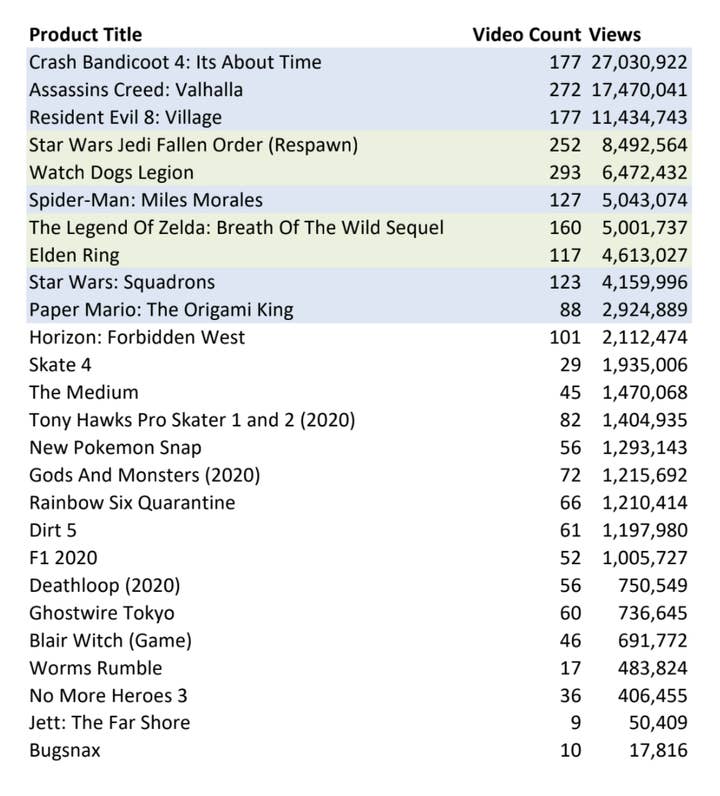
Figure 4: Twitter activity for 2019 (green) and 2020 (blue) reveals during the first 72 hours after announcement
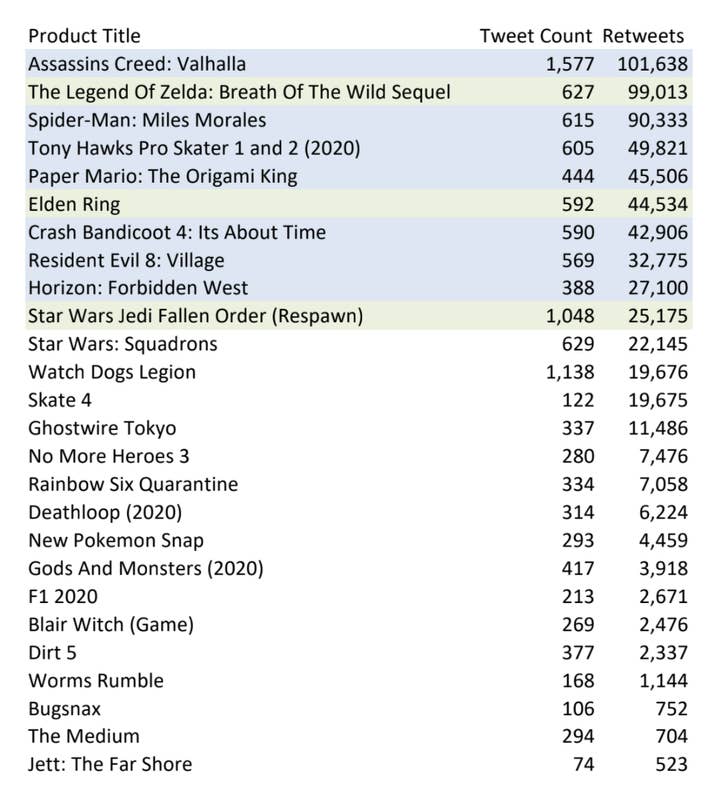
Figure 5: Facebook activity for 2019 (green) and 2020 (blue) reveals during the first 72 hours after announcement
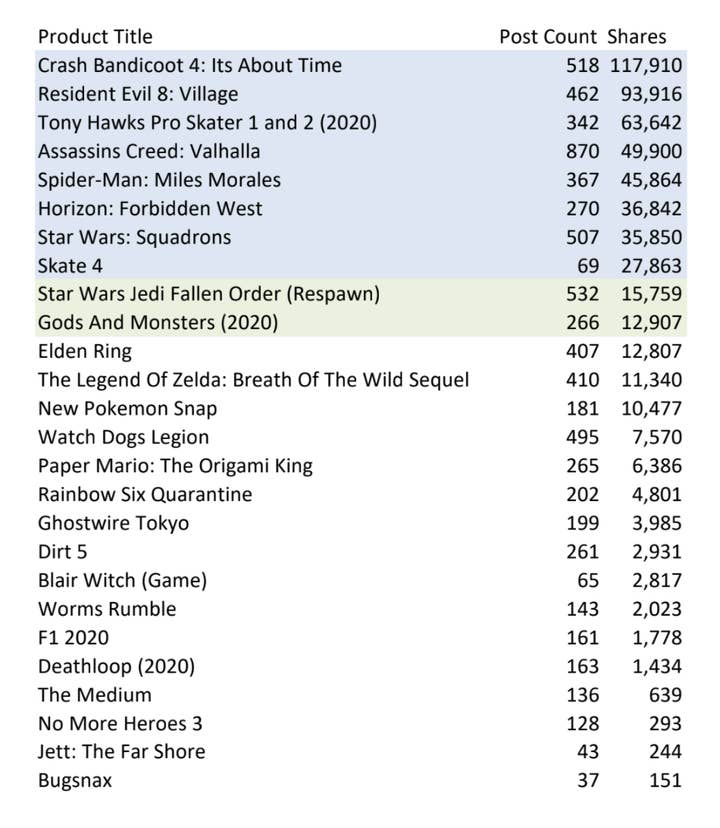
What we're looking at here is not a year where games are suffering with the loss of a proper E3 event, but rather one that's continuing to move forward through other equally successful means. Hell, if the announcement of a sequel in the once long dormant Crash Bandicoot franchise can reap a stronger online presence than the likes of a Star Wars game and a sequel to The Legend of Zelda: Breath of the Wild then 2020 must be doing something right.
2020 isn't without fault though and while the figures are painting a rather positive picture here, that isn't to say when approaching from every angle it's been a slam dunk. Far from it in fact, and this was also a problem with E3s of prior, too.
The E3 we all knew and loved isn't doing anything for games coverage-wise that a cheaper stream or surprising shadow drop can't do
2020 has introduced the Summer Game Fest, an online event that the website describes as "a new, all-digital way to unite the gaming community for a season of video game news and events from game developers and publishers". As an idea, it's a smart one, bringing together the gaming community to celebrate and generally get excited for the future of the industry. After all, that's exactly what E3 was and has always been about.
Where Summer Game Fest arguably stumbles, though, is in its execution. To go from the concentrated week-long celebration of an E3 event to something that feels like we're aimlessly drifting through, at times wondering when the next announcement or digital event will occur feels like we've gone from one polar opposite to the other.
In fact, so scattered are the "tentpole" streams and trailers as well as their announcements, that knowing where you need to be, what to expect and when isn't as simple as tuning in for one stacked week. It's not just platform holders and bigger third parties coming to the table with their own showcases, either; an increased amount of video game websites are hosting their own streams. Of the returning media streams, PC Gaming Show and Upload VR Showcase reaped some strong press and social responses reaching numbers equal to and in some cases higher than their efforts at E3 in 2019.
Some other media created events though were less successful. The Escapist, for example, held an Indie Showcase back in June, an interesting enough event but one that failed to make much noise for its featured indie products both with other journalists and on social media (see figure 6).
Figure 6: Media activity over four days after The Escapist's Indie Showcase

IGN, meanwhile, suffered the same fate with their schedule. It was even more confusing and the included games once more failed to move the needle with some of its latter days (see figure 7). It appears that more events do not always yield the coverage boost publishers and developers are after.
Figure 7: Media activity over four days for games revealed during day four of IGN Expo

So perhaps the solution here is finding a happy medium between an E3 event and the online approach we've seen in 2020. Sure, this year has been successful for a number of companies (see figure 8, 9 and 10) and the campaigns of their products, but -- just as we have been saying to the ESA for a number of years now -- improvements are needed.
Figure 8: Media activity during first 24 hours for games announced at E3 2019
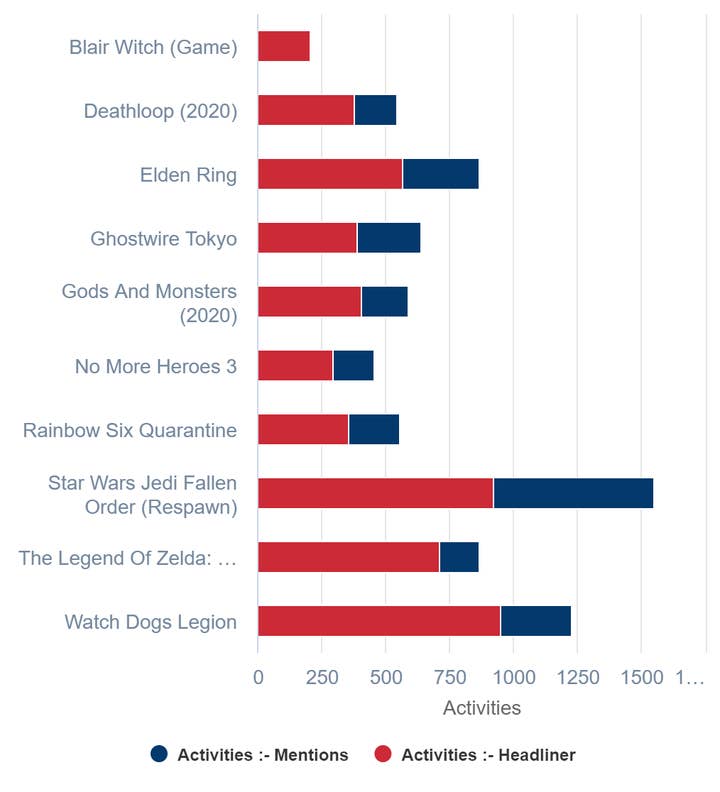
Figure 9: Media activity during first 24 hours for games announced as part of a 2020 online event
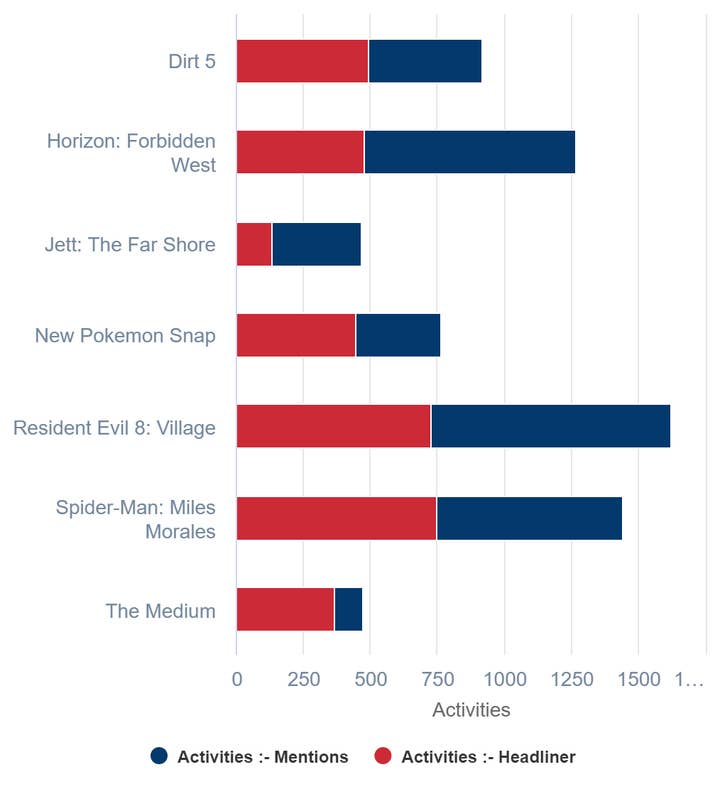
Figure 10: Media activity during first 24 hours for 2020 game announcements not associated with an online event
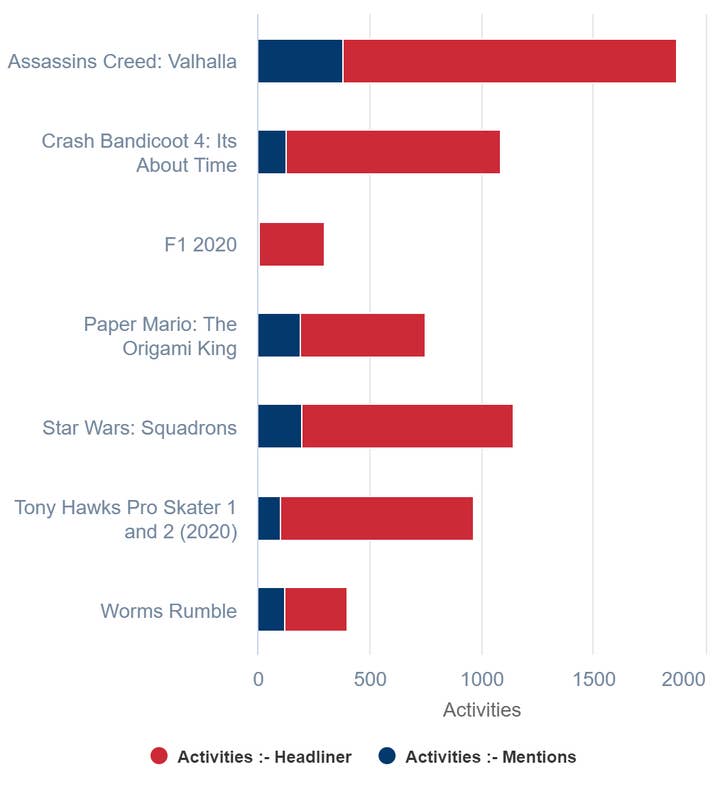
For starters, maybe tightening Summer Game Fest up to a much more concise 30 days will help keep gamers' attention far more focused. Although announcements have been given ample room to breathe this year, it's resulted in an uneven momentum for the industry filled with plenty of gaps. We feel the promised four months of Summer Game Fest has also lacked clarity, with events being announced in a staggered manner and games popping up in what feels like a scattershot approach. At least with E3 the world knew where to look and when and that idea of bringing everyone together is a powerful one.
However, this togetherness also brings cost. Having to account for the process of attending a physical location, as opposed to several spread-out streams, is an expensive marketing operation. So maybe reining things in to a more focused time period will help bring about a much stronger, more dedicated online presence for the industry, the sort that can grab mainstream headlines much the like E3s of past once did.
So, going back to my original question of whether the industry needs E3. At least from the standpoint of generating press and social coverage for your games, the answer looks to be no. Whether a publisher or developer is attaching their product to a larger stream or announcing it out of the blue, the approach appears to be working -- at times even better than some of the announcements for bigger releases at E3 last year.
The gamer inside me hates to say it but the conventional E3 we all knew and loved isn't doing anything for these games coverage-wise that a cheaper stream or surprising shadow drop can't do. We can celebrate the latest and greatest the industry has to offer and generate excitement and coverage for its products -- we just don't need to do it via E3 anymore.
